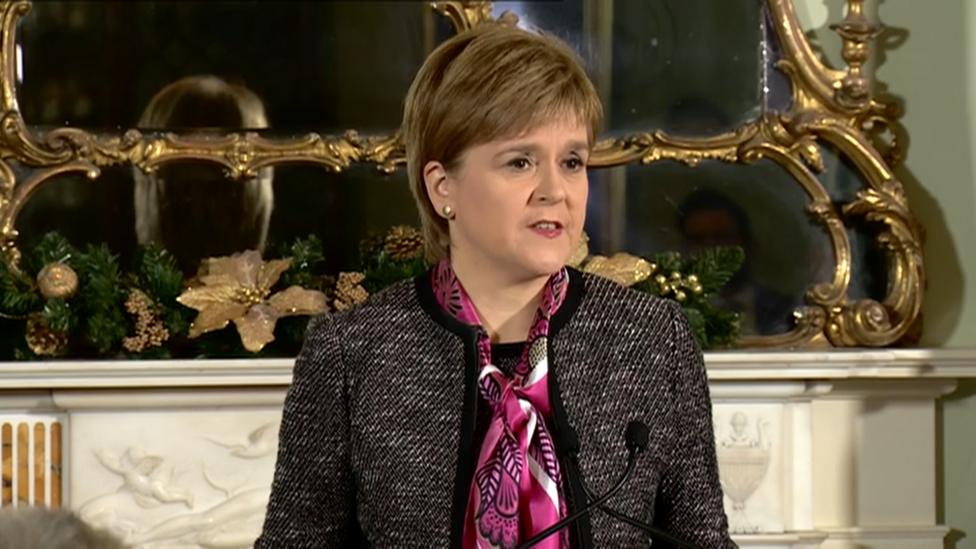Davis: 'Clear barriers' to Scottish single market plan
- Published
- comments
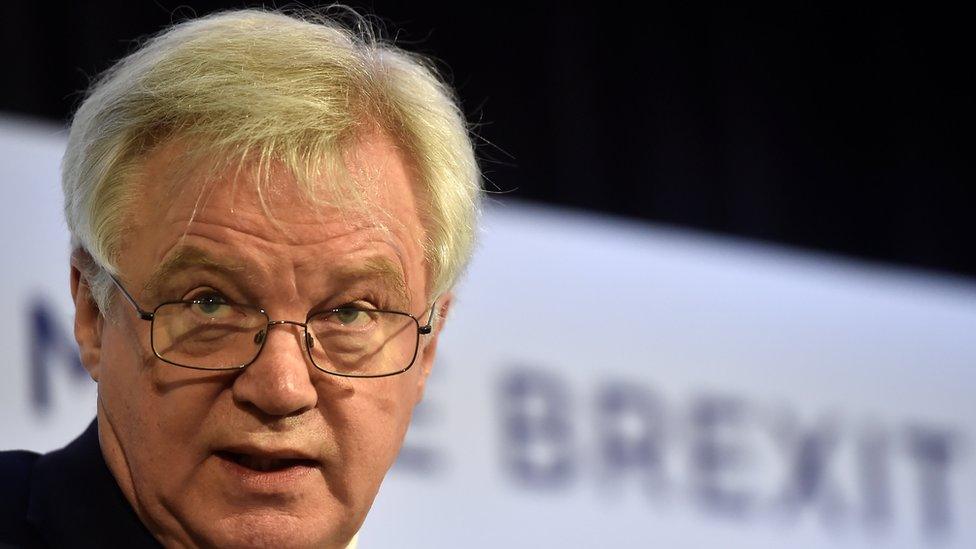
David Davis said the Scottish government's model could cause "significant disruption"
The UK government rejected Nicola Sturgeon's paper of Brexit proposals saying it could cause "significant disruption" to trade within the UK.
A letter from Brexit Secretary David Davis rejecting the proposals has been published for the first time, external.
He said there were "clear barriers" to the idea of Scotland staying in the single market via the EEA or EFTA.
Scottish Brexit minister Mike Russell replied underlining the "fundamental importance" of the single market.
He said there was "every reason to suggest that with the necessary political will and commitment" the issues raised in the letter could have been addressed.
First Minister Nicola Sturgeon published the proposals in December 2016, arguing it was possible for Scotland to remain in the European single market even after the rest of the UK left.
Her 'Scotland's Place in Europe, external' paper said a "flexible" approach could see Scotland maintain its place in the single market through the European Free Trade Association (EFTA) and the European Economic Area (EEA).
The SNP leader insisted this option did not prioritise the European market over continued free trade across the UK, but said it would "safeguard both".
Mr Davis replied to the proposal on 29 March, the day Prime Minister Theresa May formally triggered Article 50 starting the process of the UK's exit from the EU.
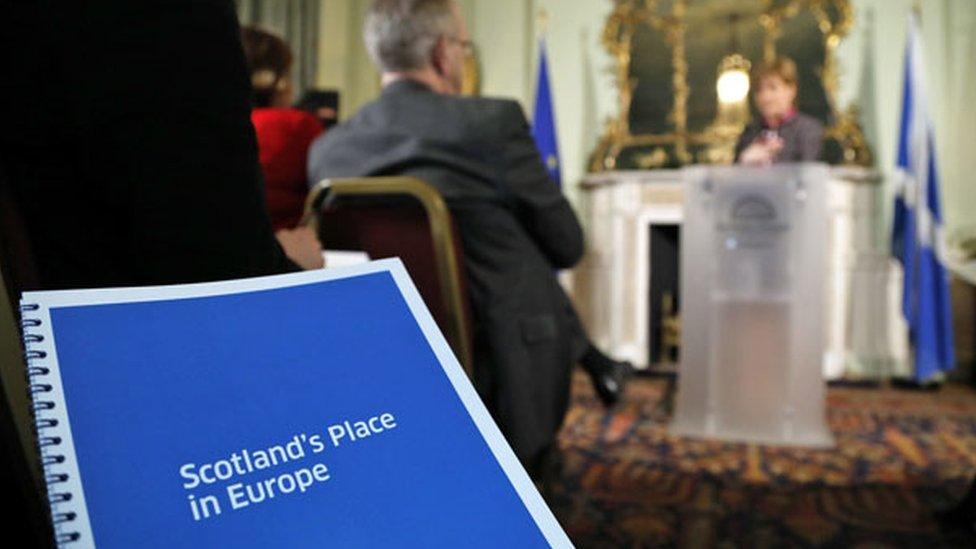
Nicola Sturgeon set out the paper of options at Bute House in December
In the letter, Mr Davis said the London and Edinburgh governments "share many of the same objectives", noting that "a substantive programme of work" had gone into examining Ms Sturgeon's proposals.
He said he was "disappointed that the Scottish government has called for another referendum on independence before we were able to discuss the outcomes of this good work, that was entered into in good faith".
On the specific matter of the singe market, he said there were "clear barriers" to making the Scottish government proposal a reality.
He wrote: "Scotland's accession to EFTA, and then the EEA, would not be deliverable and, importantly, would require the consent of all EFTA and EU member states.
"Any divergence between EU and UK law - as a result, perhaps, of new EU regulation - could lead to the creation of new barriers to trade within our union, which could take the form of additional controls and checks on trade within the United Kingdom.
"Given that trade with the rest of the UK is worth four times trade with the EU, I do not believe that such significant disruption to the internal UK market is in Scotland's - or the UK's - best interests. And Scotland's businesses could face a confusing mix of regulatory regimes."
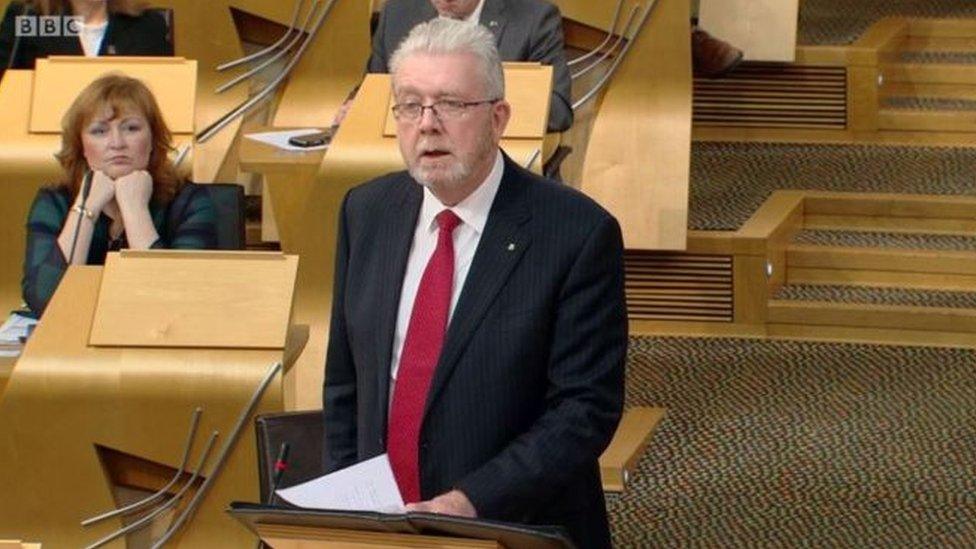
Mike Russell said devolved administrations were "frustrated" with how talks had gone
In response, Mr Russell noted "frustration" at the way talks between the governments had gone.
He wrote: "It is important to re-state the fundamental importance the Scottish government places on membership of the European single market as distinct from the UK government's ambition of having access - or partial access - to this market.
"Scotland's Place in Europe clearly sets out this distinction and the damage to Scotland's economy and society that will occur if Scotland's single market membership is jeopardised.
"In relation to the specific points you raise regarding the proposals, there is every reason to suggest that with the necessary political will and commitment these issues could have been addressed. Indeed there were no insurmountable issues raised in the engagement between officials that took place over the last two months.
"While we welcome your commitment to 'close engagement with the Scottish government and other devolved administrations' we must reiterate our view that these should be meaningful, based on trust, openness and a genuine sharing of options and policy positions as well as data, and must give real opportunities to influence the process."
There also was a row over the publication, external of the document after Scottish Secretary David Mundell claimed that the Scottish government had asked for it not to be released, something a spokesman for Mr Russell denied.
The letters were subsequently published in correspondence to Holyrood's Europe committee.
- Published20 December 2016
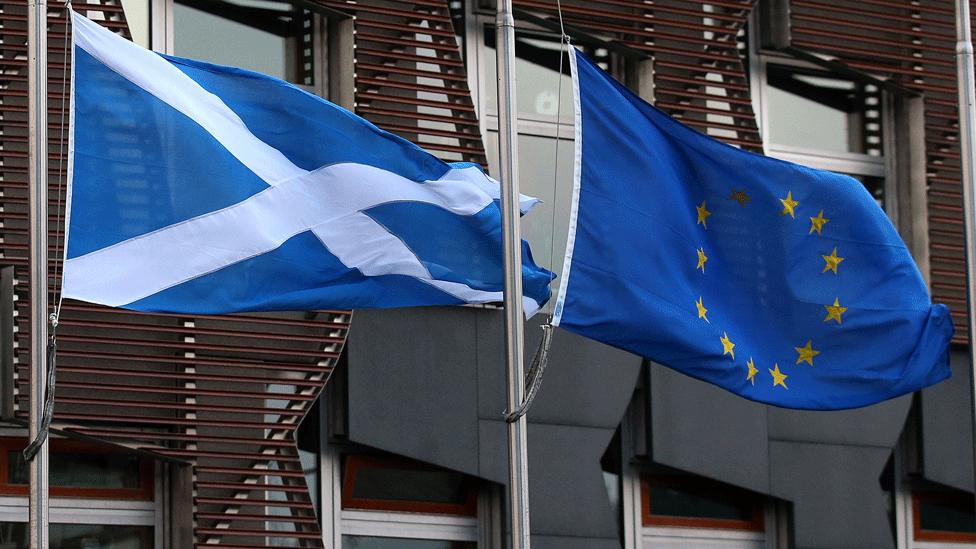
- Published20 December 2016
